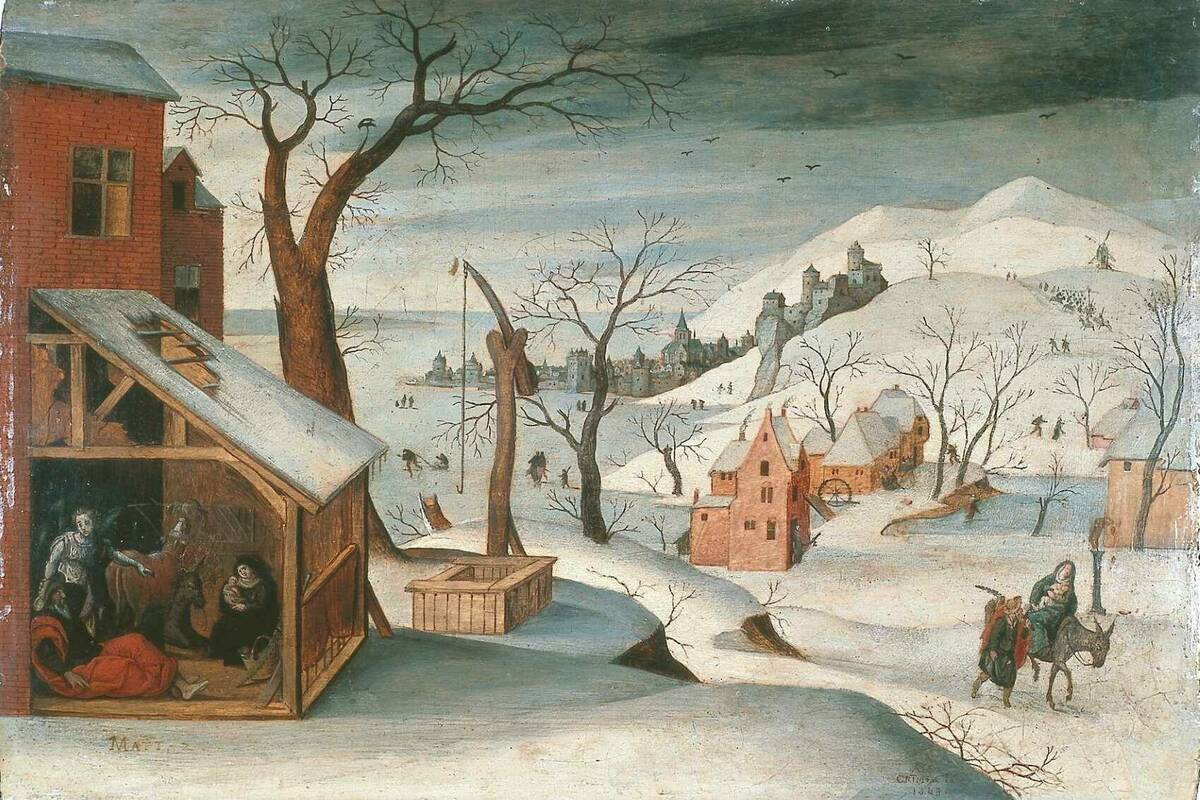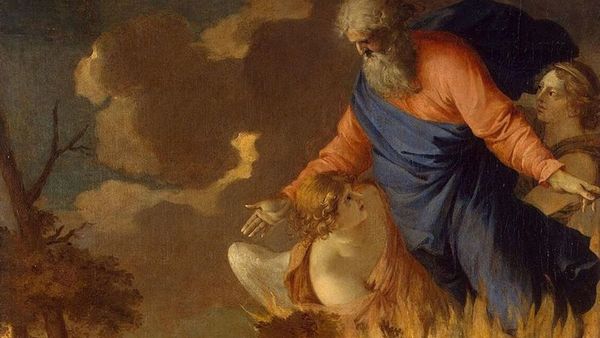Blessed are those who fear the Lord!
—Psalm 128
The fool hath said in his heart, “There is no God” (Psalm 14:1, 53:1). This Psalm passage is familiar to any reader of Anselm’s Proslogion. It is therefore associated very directly with the ontological argument for the existence of God and for many has no other association. The Psalm, it turns out, is not so much about whether or not God exists, but about the fear of God, and what happens when you do not have it. The text goes on to explain, with regard to those who say there is no God, their deeds are corrupt, depraved; not a good man is left (Psalm 14:2). The fool who says “there is no God,” means, there is no God watching me, I can do whatever I want. And thus, their deeds are corrupt.
The fear of God is currently out of favor. If you mention it in polite company, you will either be (a) awkwardly ignored; (b) told that at some point in the history of religion (likely candidates are the preaching of Jesus or the Second Vatican Council), we moved from a religion of fear to a religion of love; or (c), that “fear” really means “awe” or “wonder” and has nothing to do with the common meaning of the word.
Well, with regard to (a), offer it up. With regard to (b), so much for Judaism and the tender God whose mercy reaches to the thousandth generation, and so much for the Jesus of the Gospels, who was perfectly prepared to declare “Woe to you rich!” and to a few others. With regard to (c), there may be an argument to be made here, but too often (c) is used to domesticate the fear of God beyond recognition as such.
The fear of God, it is true, can be abused to beat up people psychologically who already have too much fear of being beat up in their lives. But recognizing that this is an abuse should prompt us to look for the genuine meaning of the idea. So, prompted by the Scripture that says The fear of God is the beginning of wisdom (Psalm 111:10). Let’s keep looking. Sticking with the Psalms, we can read further, in Psalm 10, about the man who says “There is no God”: “In his pride the wicked says: ‘He will not punish, There is no God.’ Such are his thoughts.” Continuing, it is not a pretty picture:
His path is ever untroubled;
Your judgment is far from his mind.
His enemies he regards with contempt. He thinks, “Never shall I falter …”
He lies in wait among the reeds.
The innocent he murders in secret.
His eyes are on the watch for the helpless man.
He lurks in hiding like a lion in his lair;
He lurks in hiding to seize the poor;
He seizes the poor man and drags him away;
He crouches, preparing to spring,
And the helpless fall beneath his strength.
He thinks in his heart: “God forgets,
He hides his face, he does not see.”
We meet the man who does not fear God again in Psalm 36, and he looks no better here:
Sin speaks to the sinner
In the depths of his heart.
There is no fear of God before his eyes.
He so flatters himself in his mind
That he knows not his guilt.
In his mouth are mischief and deceit.
All wisdom is gone.
He plots the defeat of goodness
As he lies on his bed.
In these Psalms, the fear of God is not intended to be applied to the poor or the helpless, but rather to those plotting against them. Notice that the fear of God in these texts does not mean awe in the face of the tremendous mystery of God, but the more commonplace fear of God’s “judgment” and fear that God will “punish.” Lacking this basic fear, the powerful act with impunity, and the “helpless” have no recourse.
Lacking the fear of God, the powerful act not only with seeming impunity, but with a complacency that is so sure that “God does not see,” that they do not even recognize their own “guilt,” for they have no perspective from which they can “see” it. There is a coarseness to this complacency that has set in. “All wisdom is gone.” The human soul has become desensitized even to premeditated (“plotted”) atrocity.
Interesting, that the lack of the fear of God is connected with a dehumanizing insensitivity—the opposite of the cliché that would assign to fear of God a servile denial of the dignity of humans. The Psalms should prompt us to ask: What does a society that has lost its fear of God look like?
They suggest the answer: One that has lost its sensitivity to helplessness, and has confused power, aka autonomy, with dignity. Having the power to choose abortion on demand has over time ingrained a certain coarseness in American culture, which can refuse even to see this is a moral issue. Having the power to view pornography on demand has created a certain coarse insensitivity towards the degradation of real women (and men) depicted there, and to the sex trafficking of the powerful who prey on the helpless. “All wisdom is gone.” It is the fool, the unwise, who hath said, “There is no God,” meaning, no ultimate accountability.
As we move towards the end of Advent, the readings continue to turn our attention to the Last Judgment. Do we greet these readings with indifference? Or rather do we pray that God would deliver us from the coarse, complacent hard heartedness that does not notice degradation, passes over human poverty as routine and considers the slaughter of helpless innocents as morally neutral? Do we “so flatter ourselves in our minds that we know not our guilt,” rejecting the readings as belonging to an outdated mythological worldview? Or do we take the opportunity to acquire “wisdom” in our time, to pray to have our humanity restored in its full range of sympathy, solidarity, and sensitivity where we may not have even noticed we had lapsed? For the fear of the Lord is the beginning of wisdom.


